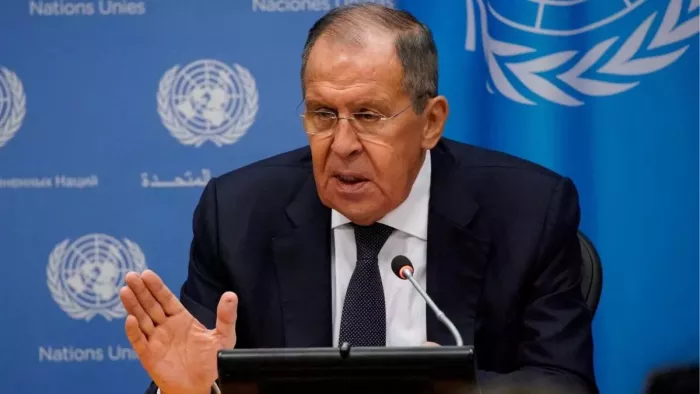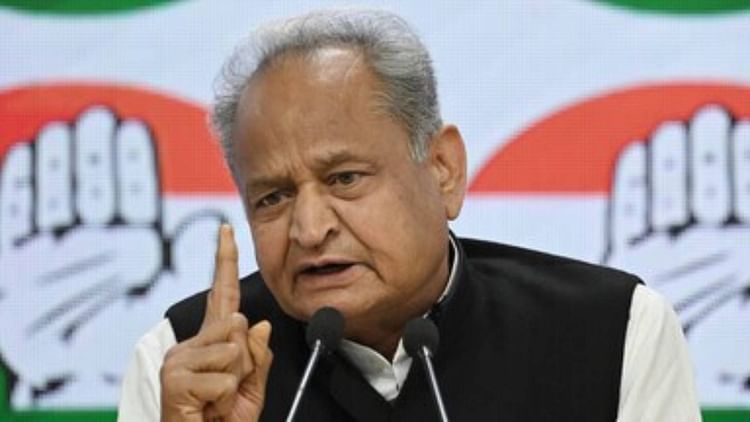Russia’s Lavrov Revives Interest in RIC Framework, Accuses NATO of Anti-China Conspiracy Against India
Russia’s Sergei Lavrov Expresses Interest in Reviving RIC Framework: A Strategic Move for India, Russia, and China
In a significant diplomatic development, Russian Foreign Minister Sergey Lavrov has expressed a keen interest in revitalizing the Russia-India-China (RIC) framework. This trilateral cooperation initiative, originally inspired by former Russian Prime Minister Yevgeny Primakov, has been instrumental in fostering dialogues among these three major powers. Lavrov’s declaration came during an international conference focusing on security and cooperation in Eurasia, held in the Russian city of Perm.
A Brief History of RIC
The RIC framework was established in the early 2000s and has served as a platform to discuss various global issues, including international security, economic cooperation, and cultural exchanges. Since its inception, the group has conducted over 20 meetings at various levels, including those involving foreign policy heads and economic and financial agencies from the three nations.
Lavrov emphasized the historical significance of this collaboration, highlighting the need to bring the RIC framework back into active engagement.
Recent Developments: Strengthening Connections
Lavrov’s remarks come at a time when geopolitical tensions are palpable, particularly in the Asia-Pacific region. Notably, the foreign minister pointed out the evolving situation along the India-China border. Addressing the complexities of these relations, he stated that a consensus on how to alleviate tensions has emerged. This signals a potential thaw between two nations that have experienced heightened border disputes in recent years.
The key points from Lavrov’s speech include:
-
Renewed Interest: Lavrov expressed a strong desire to reactivate the RIC framework, underlining its anticipated benefits in fostering better relations among the three countries.
-
Diplomatic Dialogue: He noted the importance of ongoing discussions between India and China regarding border strategies, which could pave the way for enhanced cooperation within the RIC format.
- Multilateral Meeting Successes: With over 20 meetings recorded under the RIC umbrella, Lavrov’s call for revitalization highlights a commitment to more robust diplomatic engagement.
NATO’s Influence and Allegations
Adding a layer of complexity to the situation, Lavrov also directed criticism toward NATO, accusing the alliance of attempting to draw India into an anti-China coalition. He asserted that NATO’s maneuvers could destabilize the regional balance of power and complicate India’s strategic autonomy. In Lavrov’s words:
“I have no doubt that India also understands this and sees NATO’s scheme as a major provocation,” indicating a level of trust in India’s diplomatic sensibility.
As nations navigate complex international waters, Lavrov’s accusations merit attention, particularly as India seeks to maintain a non-aligned stance while balancing its relationships with both Western alliances and its historical partners like Russia and China.
The Implications of Reviving RIC
Reviving the RIC framework holds the potential for various long-term strategic benefits:
-
Economic Collaboration: Closer ties among these three economies could enhance trade relations and encourage investments, which is essential for post-pandemic recovery.
-
Geopolitical Stability: Facilitating dialogue among India and China, through a Russian-led framework, can help mitigate border tensions and foster a more stable geopolitical climate in Asia.
- Cultural Exchange: RIC can improve people-to-people connections and cultural understanding, which are vital for long-lasting diplomatic partnerships.
Conclusion: The Road Ahead
As the world grapples with shifting alliances and rising geopolitical tensions, the revival of the RIC framework seems timely. Sergey Lavrov’s emphasis on strengthening ties between Russia, India, and China indicates a mutual interest in collaborative diplomacy.
In a rapidly changing international landscape, RIC could become a focal point for addressing pressing global issues, ranging from security challenges to economic cooperation. With Lavrov’s call to action, stakeholders from all three countries must now consider how best to engage with this initiative to reap mutual benefits and ensure regional stability.
The potential success of this renewed collaboration will largely depend on the willingness of India and China to transcend their differences, balancing their national interests against the collective goals of the RIC framework. In a polarized world, fostering dialogue will be key to navigating future challenges together.






